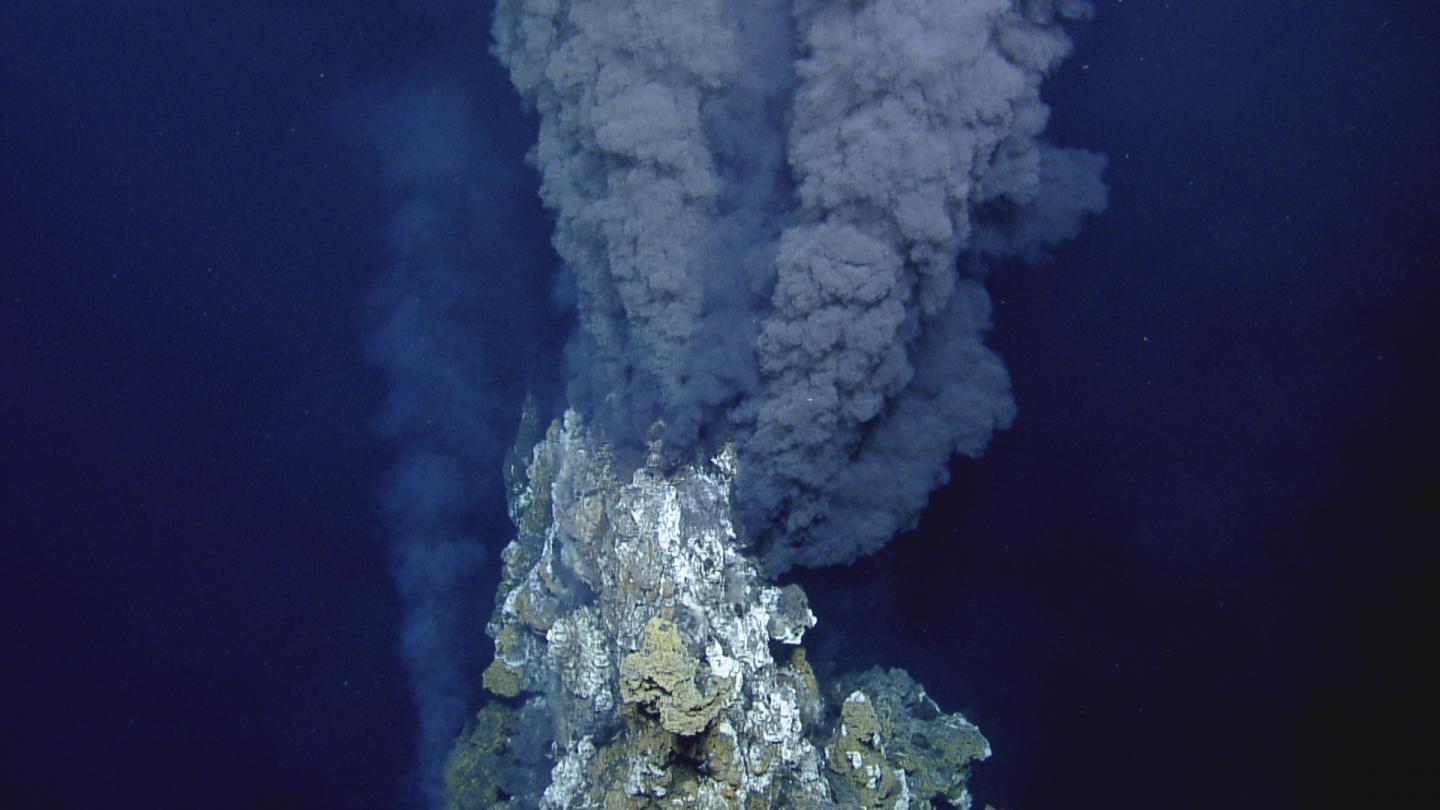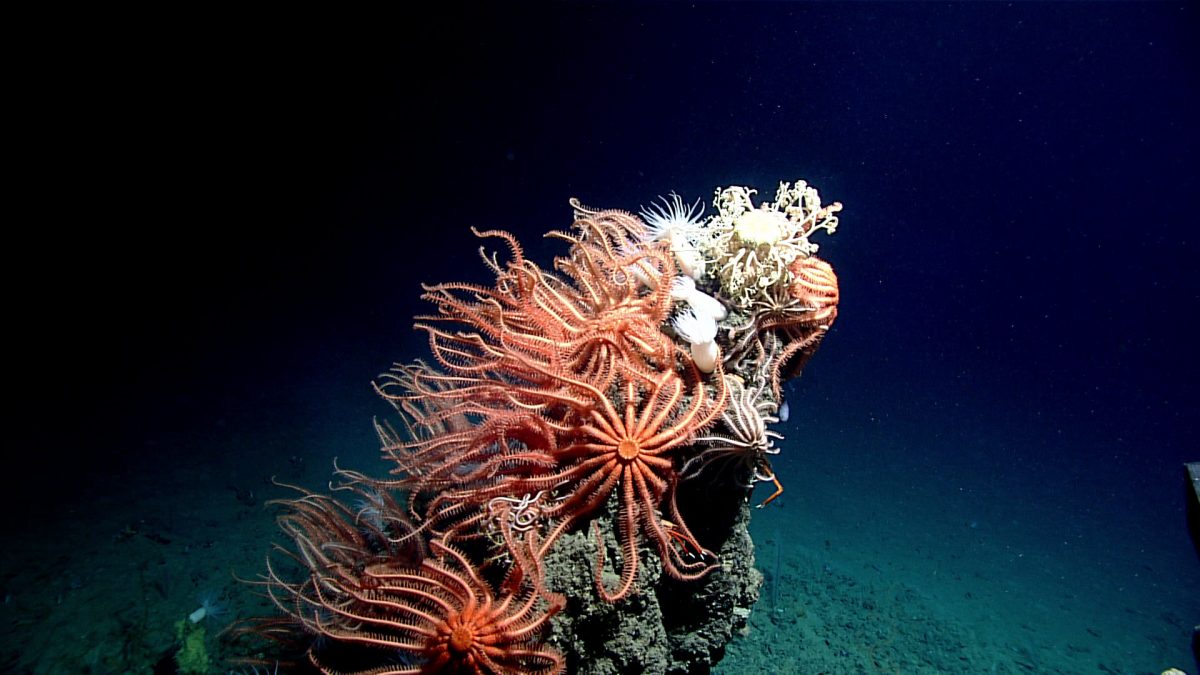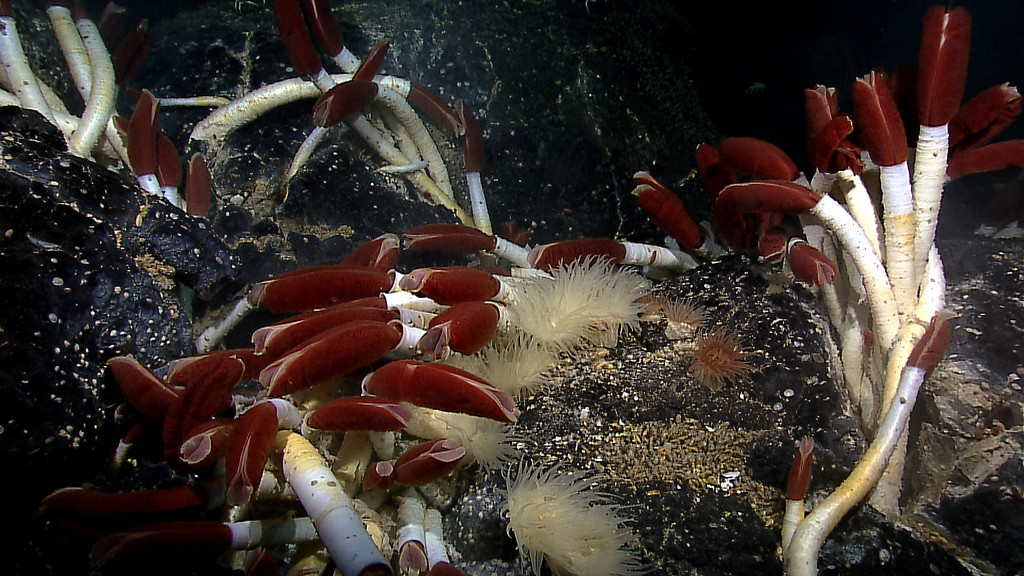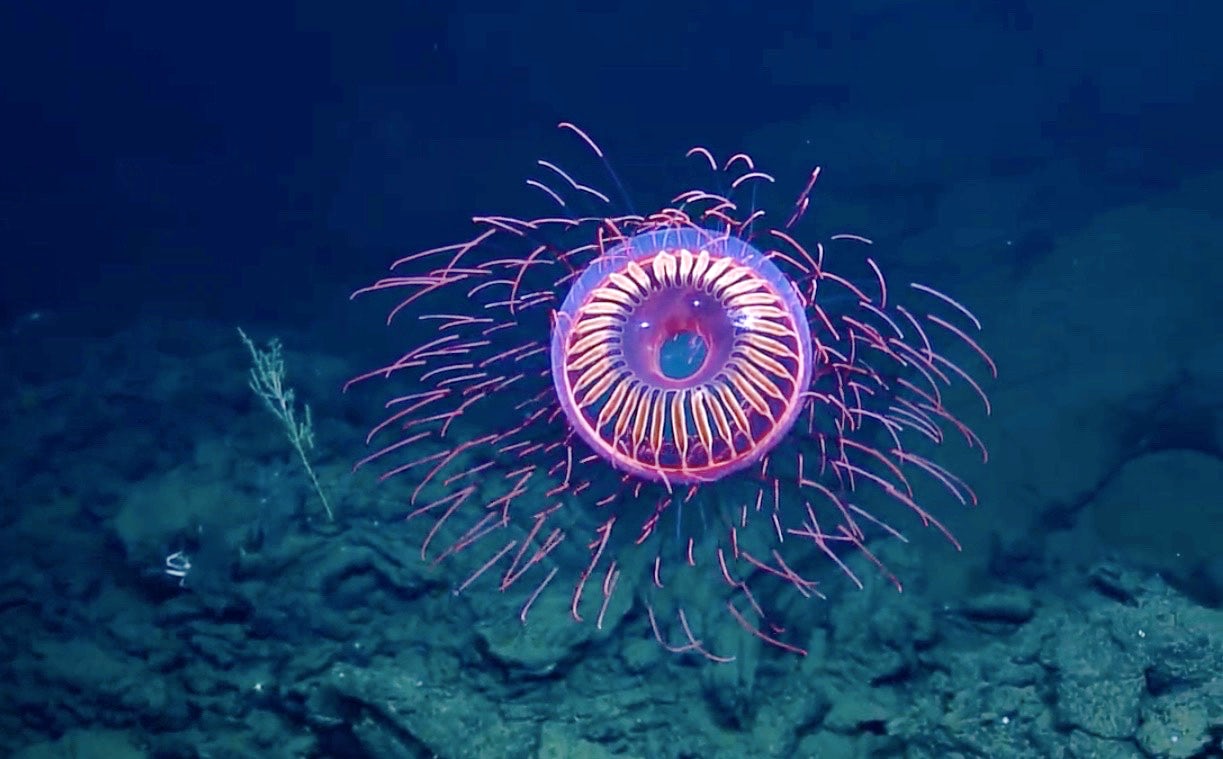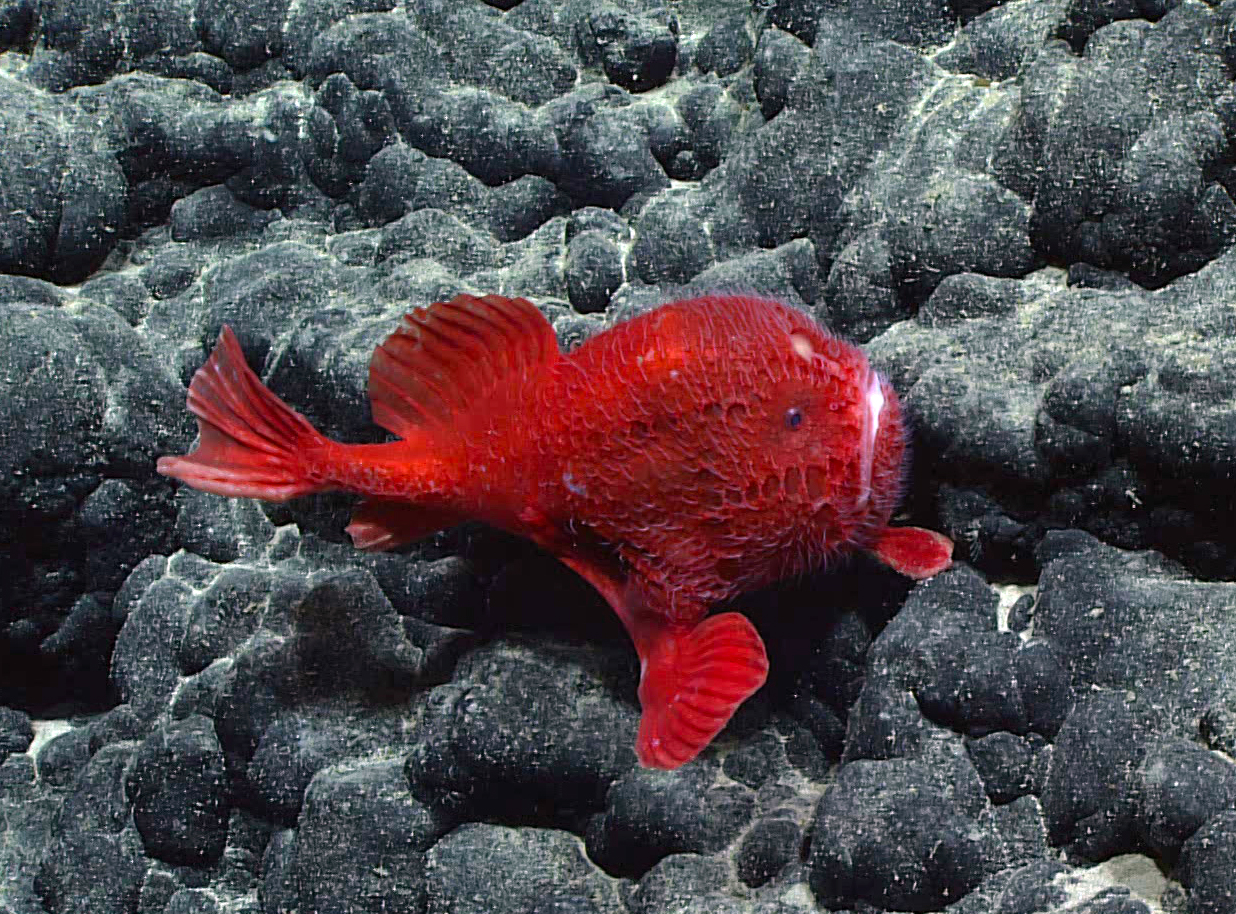Three new journal papers published since the beginning of the year highlight the complexity of deep sea ecosystems and reveal new information on some of the same seabed features targeted for seabed mining exploitation.
Deep Sea Fish Use Hydrothermal Vents to Incubate Eggs
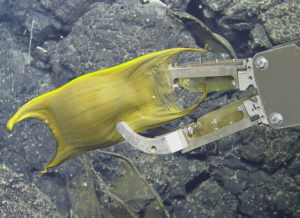
smoker in the deep waters near the Galápagos
Islands. The research team collected four egg
cases using a remotely operated underwater
vehicle for DNA analysis.
Image: Ocean Exploration Trust
A new study in the journal Scientific Reports reveals that species of deep sea skate – a close relative to sharks and rays – use volcanic heat emitted at hydrothermal vents to incubate their eggs. During an underwater vehicle (ROV) survey in the Galápagos archipelago, an international team of researchers observed a strong preference for egg deposition of skates in above-average water temperatures around hydrothermal fields. The skate Bathyraja spinosissima appears to particularly prefer chimney-like black smokers, the hottest kind of hydrothermal vent, for egg-laying. The researchers believe that the warmer temperatures in the area could reduce the typically years-long incubation time of the eggs.
An international team of researchers, including Penn State biologist Charles Fisher, discovered eggs of deep-sea skates near hydrothermal vents. The researchers believe the fish are using the volcanic heat emitted from the hydrothermal vents to accelerate egg development. (Video credit: Ocean Exploration Trust, Penn State).
New Understanding of the Dumbo Octopus
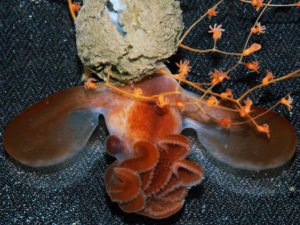
© Foto: Timothy M. Shank und NOAA Office of Exploration and Research
Dumbo octopus (Grimpoteuthis spp.), named for the Disney cartoon elephant which they resemble, live in complete darkness in near-freezing water at depths of thousands of meters across the oceans of the world. New insight into these charismatic but poorly known species has been revealed after a science crew aboard the US research vessel Ronald H. Brown filmed one measuring just a few centimeters hatching from its egg. Based on the video recordings and subsequent MRI scans of internal organs, researchers from the Delaware Museum of Natural History, the University of Bonn, the University Hospital Münster, and the Woods Hole Oceanographic Institution were able to document a surprising similarity of the hatchling with adult animals. Unlike shallow-water octopod species, the Dumbo octopus appears to lack parental care and instead are provided an unusually large yolk sack to survive off of until the animal is able to capture prey on its own. Adult females lay their eggs on the branches of deep sea corals, highlighting another reason to protect the habitats in which these corals grow. The unusual find was presented in the journal Current Biology.
New Depth Limit for Deep Sea Marine Burrows
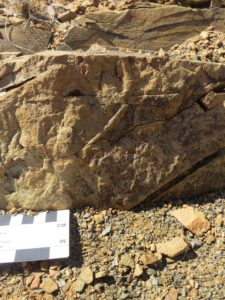
Credit: Sarah Cobain, University of Leeds
Scientists from the University of Leeds and the National Oceanography Centre in the UK have found fossil evidence of deep sea marine life burrowing up to eight metres below the seabed — four times the previously observed depth for modern deep sea life. The finding, which occurred on sand-sheets that are widespread across modern ocean floors, suggests that deep sea burrowing marine life may be much more abundant than previously considered. The team’s findings, published in Scientific Reports, highlights the need for new future sampling strategies to better capture the depth range of animals living in modern deep sea sands.
